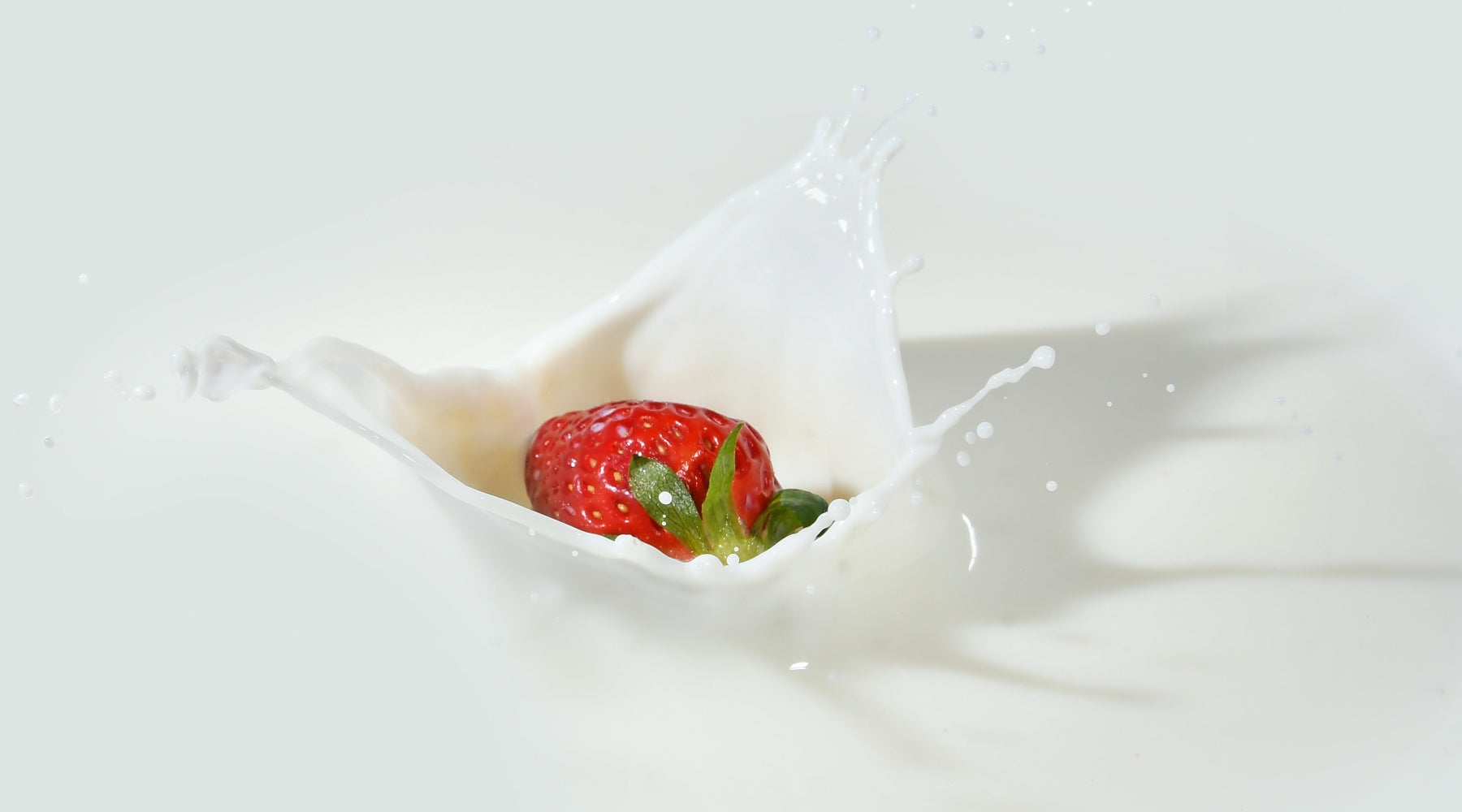
Got Mylk? A Complete Guide to Plant-Based Milks & Their Benefits
Unless you’ve been living under a rock, you might have noticed that the list of milk options at your local café has been getting longer and longer. Plant-based milks are all the rage.
Whether you are lactose intolerant, have been put off by the unethical practices of the dairy industry, or looking to minimise your environmental footprint – there are plenty of reasons to give plant-based milks a try. But not all non-dairy milks are created equal. Amazonia’s Head Dietitian Tara Kaff weighs in on the nutritional benefits of the ever-expanding milk-less milk market.
3 Benefits of Non-Dairy Milk
1. It’s Cruelty-Free: So, you can drink your milk with the peace of mind that you’re not contributing to the unethical treatment of industrialised dairy cows.
2. It’s Environmentally Friendly: Did you know that animal agriculture is responsible for 83% of total global agricultural land yet produces only 18% of the world’s calories? It’s a leading driver behind the destruction of rainforests and a huge contributor to climate change. The methane released by cows is 23 times more powerful than carbon dioxide in warming our atmosphere. Plus, factoring in the amount of water needed to feed and raise cows, it takes approximately 1,020 litres of water to produce 1 litre of milk.
3. It’s Healthier: While dairy is a good source of calcium, protein and Vitamin D, it’s also made up of unhealthy saturated fats plus nasty hormones and antibiotics. When you choose plant milk, you’re getting none of these! Plus, some non-dairy milks are fortified with essential minerals and Omega-3 fatty acids to match the nutrient content found in cow’s milk. It’s a win-win.

Here’s How the Most Popular Plant Milks Compare
Soy Milk
Cow's milk and soy milk have comparable protein concentration – at about 7-12 grams per cup. One of the cheapest and longest-standing plant milks on the market, soy milk is often fortified with calcium and Vitamin B12, so it’s a great option for vegans.
Almond Milk
Almond milk has less than 1 gram of protein per cup, but it boasts 50% more calcium than a cup of cow milk. Almonds are rich in Vitamin D and E, an antioxidant good for your brain, blood, and skin. However, it’s important to bear in mind that it takes about 5 litres of water to grow one almond, so it’s not the most environmentally friendly milk out there.
Oat Milk
A new favourite thanks to its deliciously creamy consistency (without having to use thickeners), oat milk comes just under dairy and soy milk in terms of its protein content and may help lower cholesterol thanks to the presence of beta-glucans. Boasting an impressive nutritional profile, it contains the B Vitamins Thiamine and Folate, plus the minerals Magnesium, Manganese, Phosphorus, Zinc, and Copper.
Coconut Milk
With a similar creamy texture to almond milk, coconut milk is high in Potassium, Manganese, Magnesium, Calcium, Sodium and Vitamin B – but low in protein. While coconut does contain saturated fat, it’s also one of the best dietary sources of medium-chain triglycerides (MCTs), which have been found to help boost metabolism, regulate appetite, and increase fat oxidation.

Hemp Milk
Did you know hemp seeds are higher in protein than beef, contain more calcium than milk, and have even less saturated fat than olive oil? Talk about a superfood! One of the least processed plant proteins, hemp is a great source of Magnesium, Iron, Zinc, Vitamin B1, and protein that’s easily digestible. It also contains Omega 3 and 6 fats in an ideal 1:3 ratio that promotes brain and heart health and is anti-inflammatory in the body. Growing hemp requires far less water than other crops, no chemical fertilizer or soil additives, and actually nourishes the soil rather than depleting it.
Pea Milk
One of the lesser-known plant milks, pea milk packs a serious nutritional punch. Derived from pea protein, it offers a similar amount of protein and fat as whole cow’s milk, making it a great post-workout smoothie add-in. The best part: it’s a good source of potassium and contains almost twice as much calcium as cow’s milk!
Cashew Milk
Cashew milk contains good-for-your-heart saturated fats plus anacardic acid, which may have anti-cancer effects. They’re a good source of Calcium, Vitamin D and E, and lutein and zeaxanthin, which are good for eye health. Cashews also use fewer resources than almonds and create an even creamier milk.
Rice Milk
Unsweetened rice milk is low in fat and contains 11g of carbohydrates per one-cup serve, making it ideal for adding to post-workout smoothies. It’s also gluten-free and contains about 25% RDI Calcium, plus a good amount of manganese and selenium. Look for unsweetened varieties to avoid any added sugars.
Macadamia Milk
Macadamias are packed with rich mono-unsaturated fats, Omegas 3 and 6, Vitamin B1 and B12, Magnesium and Manganese. They also contain a rare heart-healthy Omega-7 called palmitoleic acid. The only other sources are cold water fish and sea buckthorn berries.
References
https://foodrevolution.org/blog/milk-substitutes/
https://www.outsideonline.com/2392887/milk-alternatives-substitutes-benefits-healthiest
https://www.themanual.com/food-and-drink/best-plant-based-milks-benefi/


